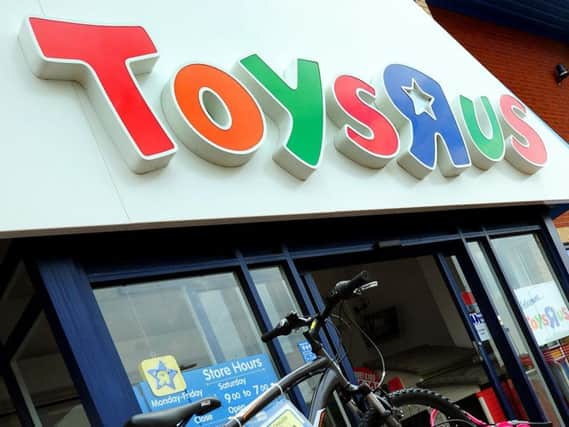David Behrens: When giving a gift was an investment in a child's development


Toy stores like theirs were places of wonder when I was small, but I’m sure I’m not the only parent to have noticed their declining appeal. Today, children as young as nine have outgrown them and gravitated instead to the adult toys at Currys, Vodafone and elsewhere.
It’s another symptom of the loss of innocence that has defined the present generation and the one before, and it’s hard not to feel nostalgic for a time when the bestowal of a gift at Christmas was an investment in a child’s development, not merely a sop to peer pressure.
Advertisement
Hide AdAdvertisement
Hide AdI, for instance, don’t know a huge amount about electronics but what I do know I learned from the instruction book of the Philips kit I was bought at ten. This was a box of new-fangled transistors and other components, with bits of wire and spring clips to hold them together – but the instructions told you what each was for. If you followed them closely, you could put together a rudimentary medium wave radio and a burglar alarm in which a torch bulb lit up if an intruder came within a few feet of it.
This, and my stamp album from Stanley Gibbons’ impossibly glamorous shop on The Strand, kept me occupied until music, fashion and other teenage tropes took over.
This year, though, parents will spend an average of £128 on each child’s main gift, according to a survey on Wednesday. Among the biggest sellers is a doll with “artificial intelligence” – although, so far as I can see, it amounts to only slightly more than the one my sister played with, which had a string on the back that you pulled to make her talk (the doll, not my sister).
This year’s doll is called Luvabella and is said to listen to what goes on and “learn” from what it hears. If the Kremlin wanted to unsubtly plant listening devices in our homes, this is how they would do it.
Advertisement
Hide AdAdvertisement
Hide AdLuvabella costs £100 and helps to explain why, again according to Wednesday’s survey, some parents are resorting to actions as extreme as skipping meals in order to meet their children’s expectations at Christmas.
I’m sure my own parents were not exempt from such pressures half a century ago – early ITV was full of adverts for the latest toys and there was no requirement to even display the prices – but they made it very clear to us that the top floor of Lupton’s toy shop, where they kept the big box items like train sets and Scalextric cars, was out of bounds except on special occasions.
Lupton’s closed down years ago and the building is a snooker hall now, which is probably just as well, because if time had not intervened, the health and safety police certainly would. Some of the old toys, I now recognise, were just plain dangerous and the train set was a case in point. Nothing came with an electrical plug in those days and the train track didn’t even include a transformer. You had to buy your own, and ours emitted more sparks than the third rail on the underground.
The building set I had at primary school was more lethal still – a pre-Lego construction system called Bayko, in which you slotted Bakelite bricks onto thin metal rods that could take your eye out if you got too close.
Advertisement
Hide AdAdvertisement
Hide AdThat all seems a world away now, but Luvabella, too, will be history before much longer. Amazon said this week that the Christmas of the future could be characterised by food that has been passed through a 3D printer to be shaped into festive symbols, and by holographic projected images of absent family members. A few too many glasses of Warninks Advocaat in their research department, I think. And given that Amazon’s delivery man can’t even find my house, I don’t think I’ll hold my breath.
But we needn’t worry about the future, because Amazon is already the Ghost of Christmas Present – its rise has taken a terrible toll on traditional stores like Toys R Us, and the European Commission’s ruling in September that it had saved €250m in tax over two years by way of a sweetheart deal in Luxembourg is a further slap in the face to local traders.
There isn’t enough yellow advocaat in all of Europe to wash away the sour taste that leaves.